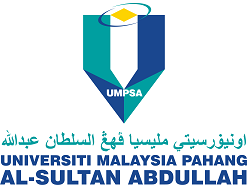PENSIJILAN HALAL MALAYSIA DALAM MEMENUHI PENJAGAAN HIFZ NAFS DAN PERANAN PENGUSAHA
Malaysian Halal Certification in Fulfill Hifz Nafs Concept and Entrepreneur's Role
DOI:
https://doi.org/10.15282/ijhtc.v7i2.8783Keywords:
Maqasid Shariah, Hifz Nafs, Halal Certification, Food Safety, Entrepreneurs, Maqasid Syariah, Pensijilan Halal, Keselamatan Makanan, PengusahaAbstract
Abstract: Halal certification, which was introduced in 1974, takes into account aspects of law, safety, cleanliness, and quality aimed at safeguarding the interests of consumers. Halal certification issued by JAKIM has gone through several improvements and changes that focus on the concept of halal tayyiban. This concept is contained in the Malaysian Halal Certification Procedure Manual (MPPHM) which includes the aspect of preserving life which is one of the principles maqasid shariah. maqasid shariah is the objective of shariah and has had a direct impact on the aspect of food safety in preserving human life. The implications of Malaysia’s Halal certification to realize the objective of protecting lives from the aspect of food safety requires further study. This study aims to see the implications of Malaysia halal certification in meeting the needs of consumers from the aspect of safety and health, then this factor is seen from the point of view of the sharia maqasid of preserving life (Hifz Nafs). This study is qualitative and uses content analysis methods with data collection consisting of books, documents, journals, and websites of the agencies involved. The data obtained were analyzed using the thematic method through an inductive approach to achieve the objectives of the study. The findings of the study show that halal certification has a direct impact on the shariah objective (maqasid syariah) of preserving life that can protect the interests of consumers from a safety and health perspective. Therefore, entrepreneurs have a role to obtain Malaysia halal certification to apply the concept of Hifz Nafs in their companies to guarantee quality and safety.
Abstrak: Pensijilan halal yang diperkenalkan sejak tahun 1974 mengambil kira aspek hukum, keselamatan, kebersihan, dan kualiti bertujuan untuk menjaga kepentingan pengguna. Pensijilan halal yang dikeluarkan oleh JAKIM melalui beberapa penambahbaikan dan perubahan yang berfokus kepada konsep halalan tayyiban. Konsep ini terkandung dalam Manual Prosedur Pensijilan Halal Malaysia (MPPHM) merangkumi aspek memelihara nyawa yang menjadi antara teras utama maqasid syariah. Maqasid syariah merupakan objektif pensyariatan hukum memberi impak kepada aspek keselamatan makanan dalam memelihara nyawa pengguna. Namun begitu, implikasi persijilan halal bagi merealisasikan objektif memelihara nyawa dari aspek keselamatan makanan memerlukan kajian lanjut. Kajian ini bertujuan untuk melihat implikasi persijilan halal dalam memenuhi keperluan pengguna dari aspek keselamatan dan kesihatan kemudian faktor ini dilihat dari sudut pandang maqasid syariah memelihara nyawa (Hifz Nafs). Kajian ini berbentuk kualitatif dan menggunakan metode analisis kandungan dengan pengumpulan data yang terdiri daripada kitab, buku, dokumen, jurnal dan laman sesawang agensi yang terlibat. Data yang diperolehi dianalisis menggunakan metode tematik melalui pendekatan induktif bagi mencapai objektif kajian. Dapatan kajian menunjukkan bahawa pensjilan halal Malaysia mempunyai kesan langsung kepada objektif syariah (maqasid syariah) memelihara nyawa yang dapat menjaga kepentingan pengguna dari sudut keselamatan dan kesihatan. Oleh itu, pengusaha mempunyai peranan untuk mendapatkan pensijilan halal bagi mengaplikasi konsep Hifz Nafs dalam perusahaan mereka bagi menjamin kualiti dan keselamatan.
Downloads
Published
Issue
Section
License
Copyright (c) 2022 University Malaysia Pahang Publishing

This work is licensed under a Creative Commons Attribution 4.0 International License.




